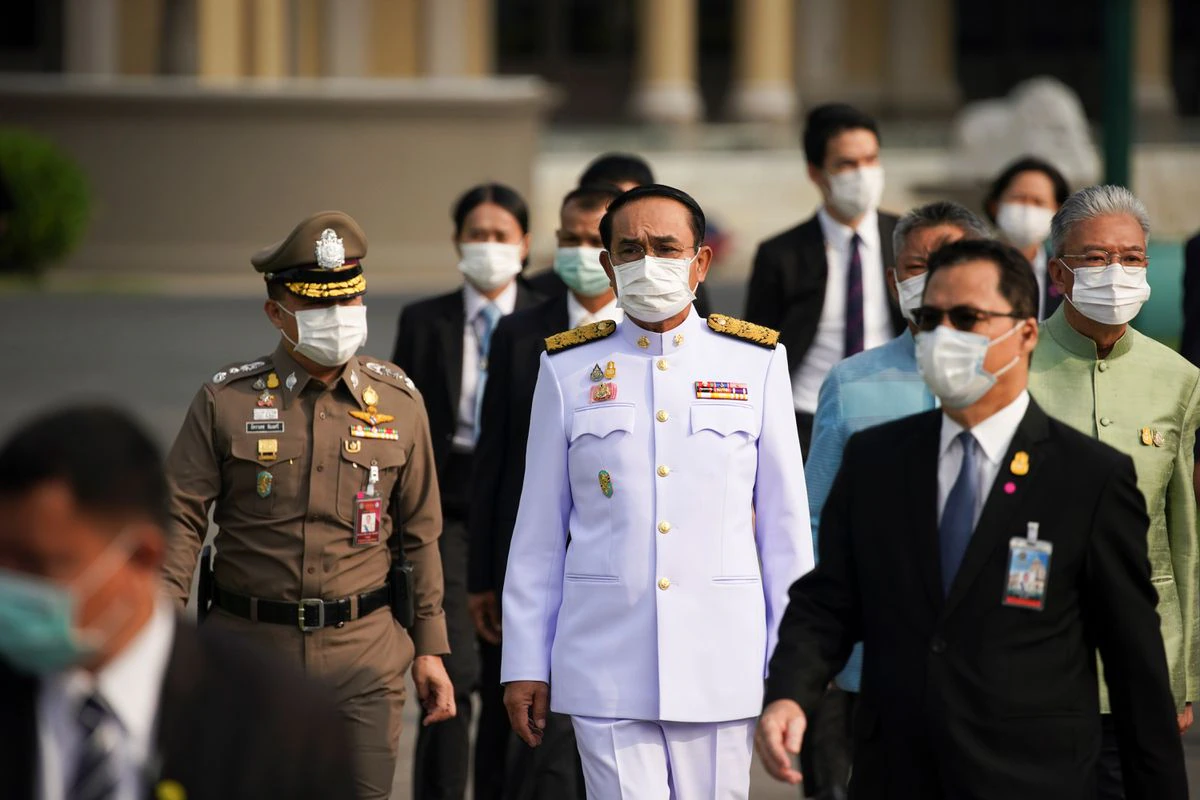ICJ along with 12 civil society organizations, wrote a letter to Prime Minister Prayut Chan-o-cha, expressing concern regarding the right to peaceful assembly in Thailand.
1 September 2021
Prime Minister Prayut Chan-o-cha
Royal Thai Government
Government House
1 Phitsanulok Road
Dusit, Bangkok
Thailand
Re: Concerns regarding the right to peaceful assembly in Thailand
Dear Prime Minister Prayut Chan-o-cha,
We, the 13 undersigned organizations, write to express our concern regarding violence and the excessive use of force by police at recent protests in Bangkok. We are troubled by the disproportionate response of riot police to provocations by protesters. We are also concerned by the arbitrary detention of protest leaders who have recently faced new criminal charges and have been denied bail and detained. Thailand needs to do more to protect protesters from violence and ensure that the public can safely exercise the right to peaceful assembly during the COVID-19 pandemic.
In recent weeks, both riot police and protesters have contributed to a significant escalation in violence at political protests in Bangkok. In August alone, police have forcibly dispersed at least ten demonstrations using rubber bullets, water cannons, and tear gas. At several protests, demonstrators threw rocks and Molotov cocktails, launched fireworks, and used slingshots to shoot nuts and bolts at riot police. Many of the clashes have occurred near Din Daeng intersection, which is close to the headquarters of the 1st Infantry Division of the Royal Guard. Youth participation in these protests has been high, with a large proportion of protesters under the age of 18.
Crowd control measures and other actions taken by law enforcement officers have frequently violated the human rights of protesters and international standards on the policing of protests. Police officers have repeatedly fired rubber bullets at protesters in an indiscriminate fashion. Footage from a recent protest shows riot police firing rubber bullets from a highway overpass at a distance too great to ensure the targeting of violent individuals in a manner consistent with international standards. In other videos, police officers appear to shoot rubber bullets at individuals passing on motorcycles, including at point blank range. Journalists, including those who visibly identified themselves as press, have also reported being hit with rubber bullets at protests.
Police have reportedly fired tear gas canisters directly at protesters. On 13 August 2021, a protester, Thanat Thanakitamnuay, was hit in the face by an object believed to be a tear gas canister fired by police at Din Daeng intersection and has reportedly lost sight in his right eye.
The recent use of firearms by unknown assailants at a protest raises further grave concerns. On 18 August 2021, three teenage protesters were shot with live ammunition in front of the Din Daeng Police Station. One of the victims—a 15-year-old boy—was hit by a bullet in the neck and remains in intensive care. According to a hospital report he is suffering from paralysis of both arms and legs and is not responding to stimulus. The other two injured protesters were reportedly 14 and 16 years old. The police have denied using live ammunition during the protest and said they are investigating the shooting.
In addition to cracking down on street protests, Thai authorities have continued their harassment of protest leaders and participants through legal processes. Since July 2020, more than 700 individuals, including at least 130 children, have been investigated in connection to their protest activities.[1] Between 7 and 9 August 2021, at least 32 protest leaders and participants were arrested and charged with a variety of offences. Ten were arbitrarily denied bail and subjected to pre-trial detention.
Two of the protesters who were arrested, Arnon Nampa and Jatupat Boonpattararaksa, are Gwangju Prize for Human Rights laureates. Arnon was charged, inter alia, with lèse-majesté (defaming the monarchy) in relation to a speech he gave on monarchy reform at a protest in Bangkok on 3 August 2021. Jatupat was charged with, inter alia, violating a COVID-19 emergency regulation after he organized a protest in front of Thung Song Hong Police Station on the same day. Seven other protest leaders—Parit Chiwarak, Nutchanon Pairoj, Sirichai Natueng, Phromsorn Weerathamjaree, Panupong Chadnok, Thatchapong Kaedam, and Panadda Sirimatkul—were all charged, inter alia, with violating a COVID-19 emergency regulation as a result of their participation in a peaceful protest in front of the Border Patrol Police Region 1 Headquarters on 2 August 2021. Sam Samart, a 19-year-old, was arrested on 7 August and charged, inter alia, with violating a COVID-19 emergency regulation in relation to the protest in front of the Border Patrol Police Region 1 Headquarters on 2 August 2021.
Many of these activists have previously been detained, prosecuted, and imprisoned for their protest activities. In 2016, Jatupat was sentenced to two-and-a-half years’ imprisonment after he was convicted of lèse-majesté. Earlier this year, Parit was detained for 91 days on similar charges. Arnon, Panupong, and Phromsorn were also arrested earlier this year and were released from pre-trial detention in June.
The court determined that the activities of key protest leaders including Arnon, Parit, and Jatupat violated the bail conditions connected to their previous lèse-majesté cases, which prohibited them from participating in political protests or further defaming the monarchy. They could face years of pretrial detention.
At least eight of the detained protesters have reportedly tested positive for COVID-19 while jailed. On 26 August 2021, the Court of Appeal granted bail to Sirichai Natueng, Panadda Sirimasakul, and Sam Samart, and they were released from custody. Even though prisons are overwhelmed with COVID-19 cases, the other seven protest leaders remain in pre-trial detention, each having been denied bail at least twice.
Read the full letter in English and Thai.
Organizations
Amnesty International
ARTICLE 19
ASEAN Parliamentarians for Human Rights
Asia Democracy Network
Asian Forum for Human Rights and Development (FORUM-ASIA)
Asian Network for Free Elections (ANFREL)
CIVICUS: World Alliance for Citizen Participation
Civil Rights Defenders
FIDH – International Federation for Human Rights
Fortify Rights
Human Rights Watch
International Commission of Jurists
Manushya Foundation





